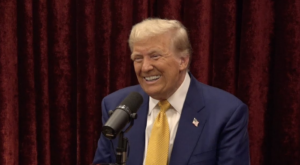As federal judges take steps to block or modify significant parts of President Trump's robust government reform strategy, his supporters are vocally framing these actions as open obstructionism from a system intent on self-preservation. Key aspects of Trump’s agenda are being challenged, from the reinstatement of thousands of dismissed bureaucrats and the reallocation of billions in taxpayer funds into dubious USAID programs, to the controversial reinstatement of deported foreign nationals.
Trump's Reform Agenda Faces Judicial Obstruction Amidst Calls for Change

Trump's Reform Agenda Faces Judicial Obstruction Amidst Calls for Change
Federal judicial decisions reveal tensions between President Trump's government reforms and established bureaucratic norms as supporters decry obstruction tactics.
Supporters of Trump assert that these decisions, predominantly made by judges with political ties, represent an entrenched bureaucracy resisting the changes the president was elected to implement. They believe the public is aware of this struggle, as surveys indicate that approximately two-thirds of the American populace perceives the system as flawed.
Trump’s party argues that the opposition, often characterized by repeated terms like “systemic racism” and “systemic injustice,” fails to present substantial reforms. Critics from the right maintain that, even as the Left identifies issues in American society, they neglect to offer tangible solutions for the numerous citizens, diverse in heritage and experience, who continuously face obstacles in their pursuit of success.
Trump remains unfazed by these judicial setbacks. He interprets this pushback as evidence of the very fear of transformational change that his administration aims to instigate across the country. The struggle reflects the complexities of governance in today's polarized political landscape, where the push for reform clashes with established legal and bureaucratic boundaries.
Trump’s party argues that the opposition, often characterized by repeated terms like “systemic racism” and “systemic injustice,” fails to present substantial reforms. Critics from the right maintain that, even as the Left identifies issues in American society, they neglect to offer tangible solutions for the numerous citizens, diverse in heritage and experience, who continuously face obstacles in their pursuit of success.
Trump remains unfazed by these judicial setbacks. He interprets this pushback as evidence of the very fear of transformational change that his administration aims to instigate across the country. The struggle reflects the complexities of governance in today's polarized political landscape, where the push for reform clashes with established legal and bureaucratic boundaries.


















